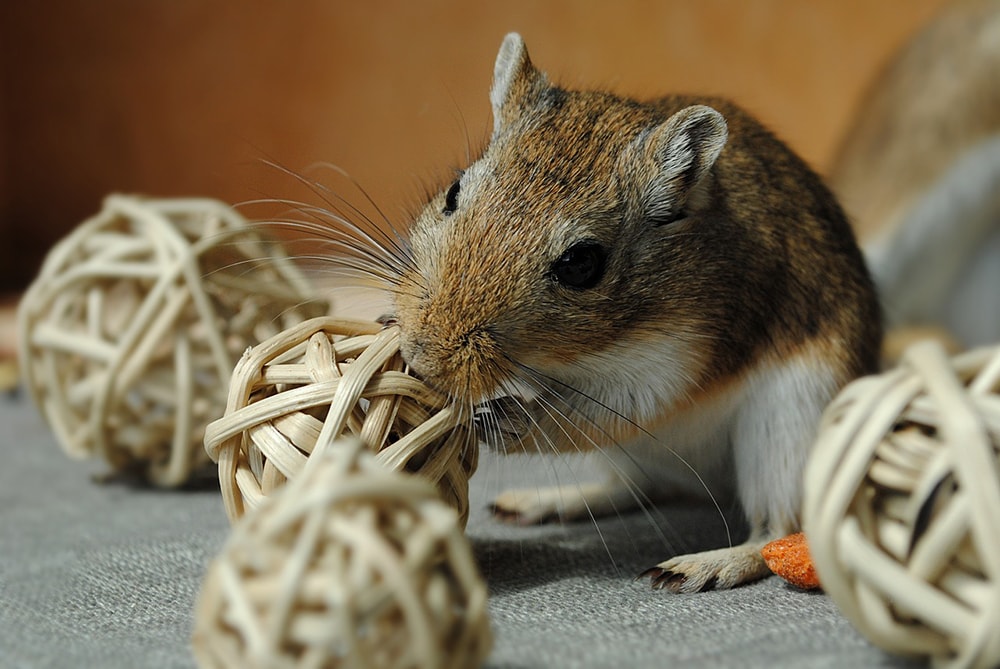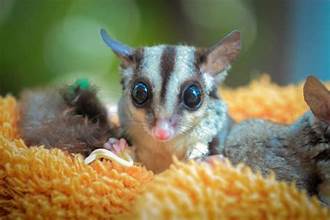In 2024, the trend of keeping exotic pets in small living spaces continues to rise, reflecting a growing desire for unique companionship without compromising on space. If you’re living in an apartment or a compact home and are contemplating adding an exotic pet to your life, this guide will provide you with trends and tips to ensure your choice fits seamlessly into your living environment while meeting your needs and those of your pet.
Trends in Exotic Pets for Small Spaces
- Miniature Reptiles: Miniature reptiles like the Leopard Gecko and the Crested Gecko are gaining popularity among small-space dwellers. Their compact size, minimal habitat requirements, and low noise levels make them ideal for apartment living. These reptiles are not only visually striking but also relatively easy to care for, making them a great choice for first-time exotic pet owners.
- Small Mammals: Exotic small mammals, such as Sugar Gliders and Pygmy Hedgehogs, are trending due to their manageable size and sociable nature. These animals require a small cage with enrichment activities, which fits well in limited spaces. Sugar Gliders, with their charming gliding abilities and affectionate nature, are particularly popular. Pygmy Hedgehogs, with their unique appearance and low-maintenance needs, also appeal to small-space residents.
- Aquatic Life: Aquariums with small, exotic fish species or invertebrates like shrimp and snails have become increasingly popular. Betta fish, for example, require only a small tank and minimal equipment, making them perfect for tight spaces. Similarly, Nano aquariums housing vibrant shrimp or small, colorful fish offer a visually pleasing and low-maintenance option for those who enjoy aquatic life.
- Insects and Arachnids: For those who are not squeamish about insects, keeping tarantulas, scorpions, or stick insects is becoming a trend. These pets require minimal space and are relatively low-maintenance. They also offer a fascinating look into the world of arthropods and can be quite engaging to observe.
Tips for Choosing and Caring for Exotic Pets in Small Spaces
- Research Requirements: Before acquiring any exotic pet, thoroughly research its specific habitat, dietary needs, and health requirements. Each species has unique needs, and understanding them will help you provide a suitable environment in your small space.
- Opt for Compact Habitats: Choose pets that require small, easy-to-maintain habitats. For reptiles and small mammals, ensure their enclosures are appropriately sized and provide necessary enrichment without taking up too much room. For aquatic pets, select compact aquariums and maintain proper filtration systems to ensure water quality.
- Consider Noise Levels: Exotic pets vary in their noise levels. Opt for pets that are quieter to avoid disturbing your neighbors or disrupting your daily routine. For example, reptiles and insects are typically silent, whereas some small mammals might vocalize.
- Check Legalities: Ensure that your chosen exotic pet is legal in your area. Some cities or states have regulations regarding the ownership of certain exotic animals. Verify local laws and regulations to avoid any legal issues.
- Invest in Proper Enclosures: High-quality enclosures and accessories are crucial for the well-being of your pet. Invest in enclosures that are easy to clean and provide adequate ventilation. For reptiles, ensure that their habitat mimics their natural environment as closely as possible.
- Provide Enrichment: Exotic pets need mental and physical stimulation to thrive. Incorporate enrichment activities into their habitat, such as climbing structures for reptiles, interactive toys for small mammals, or hiding places for insects.
- Maintain Hygiene: Regular cleaning of the pet’s habitat is essential to prevent disease and odor. Follow a consistent cleaning schedule and monitor your pet’s health for any signs of illness.
- Be Prepared for Veterinary Care: Exotic pets may require specialized veterinary care. Establish a relationship with a veterinarian who has experience with exotic animals to ensure your pet receives proper health care.
Conclusion
Choosing an exotic pet for a small living space can be a rewarding experience if you select the right species and are prepared to meet their needs. Miniature reptiles, small mammals, aquatic life, and certain insects or arachnids can all thrive in compact environments when provided with appropriate care and enrichment. By following the latest trends and tips, you can ensure that both you and your exotic pet enjoy a harmonious and fulfilling companionship in your small space.




